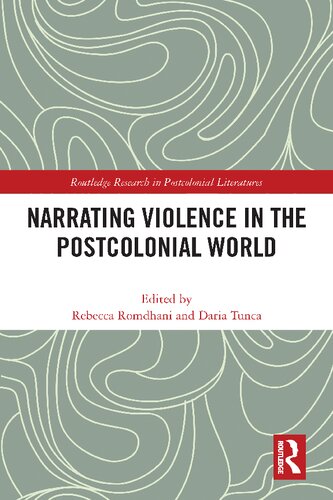

Most ebook files are in PDF format, so you can easily read them using various software such as Foxit Reader or directly on the Google Chrome browser.
Some ebook files are released by publishers in other formats such as .awz, .mobi, .epub, .fb2, etc. You may need to install specific software to read these formats on mobile/PC, such as Calibre.
Please read the tutorial at this link: https://ebookbell.com/faq
We offer FREE conversion to the popular formats you request; however, this may take some time. Therefore, right after payment, please email us, and we will try to provide the service as quickly as possible.
For some exceptional file formats or broken links (if any), please refrain from opening any disputes. Instead, email us first, and we will try to assist within a maximum of 6 hours.
EbookBell Team

0.0
0 reviewsThis book examines representations of violence across the postcolonial world―from the Americas to Australia―in novels, short stories, plays, and films. The chapters move from what appear to be interpersonal instances of violence to communal conflicts such as civil war, showing how these acts of violence are specifically rooted in colonial forms of abuse and oppression but constantly move and morph. Taking its cue from theories in such fields as postcolonial, violence, gender, and trauma studies, the book thus shows that violence is slippery in form, but also fluid in nature, so that one must trace its movement across time and space to understand even a single instance of it. When analysing such forms and trajectories of violence in postcolonial creative writing and films, the contributors critically examine the ethical issues involved in narrating abuse, depicting violated bodies, and presenting romanticized resolutions that may conceal other forms of violence.